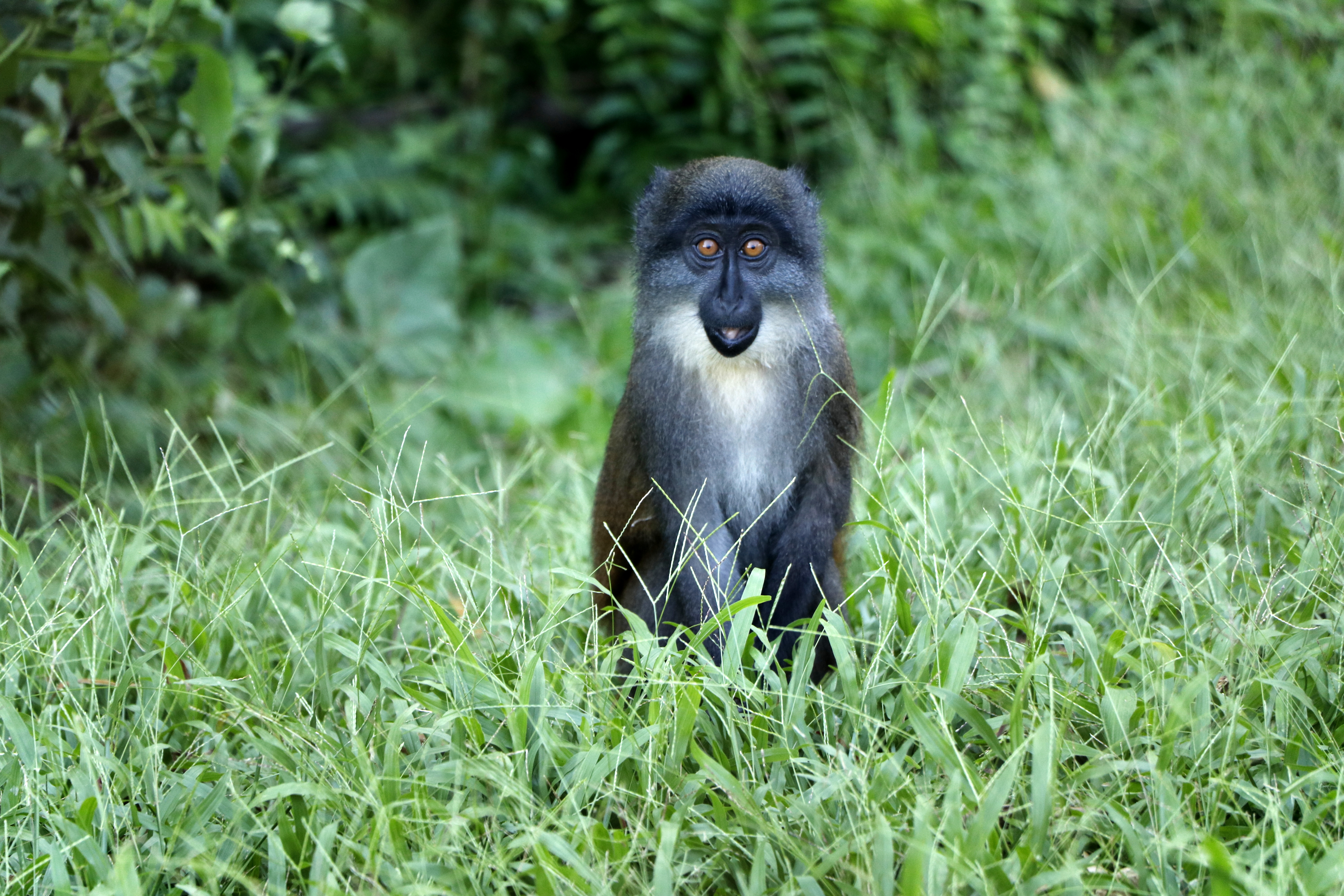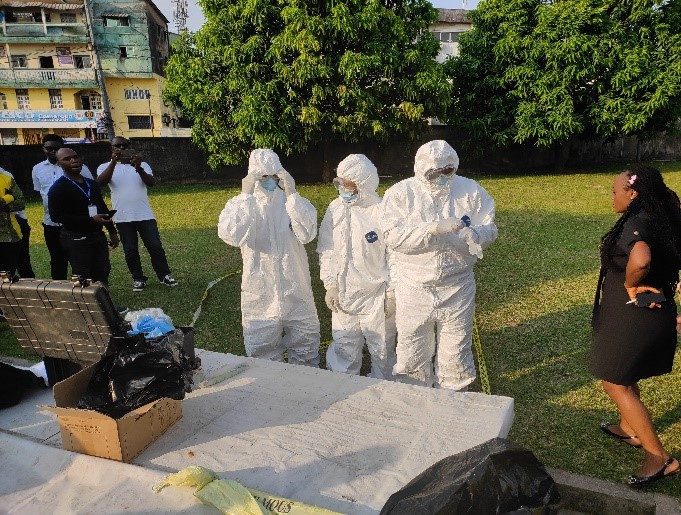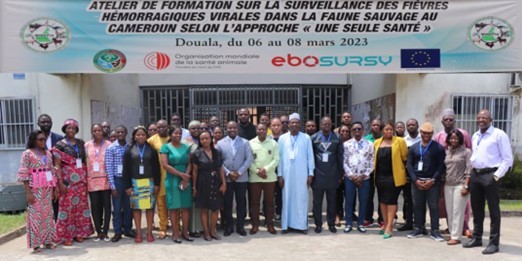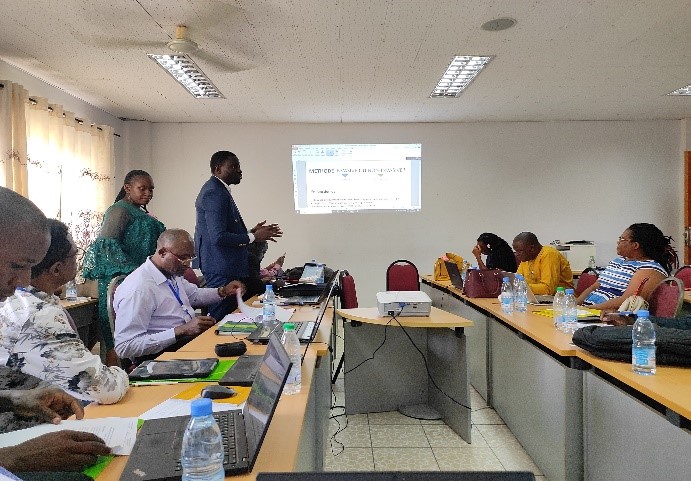
With cases of Marburg virus fever reported in Equatorial Guinea at the end of February 2023, the capacity building of teams focused on epidemic prevention is crucial. The EBO-SURSY Project, funded by the European Union, supported the organisation of a multisectoral training session in neighbouring Cameroon from 6 – 8 March 2023. The training aimed to build the capacity of health actors on the surveillance of viral haemorrhagic fevers in wildlife according to the One Health approach.
During three days, 35 participants from the human health, animal health, environment, wildlife reserves and parks sectors and the national zoonoses programme strengthened their knowledge by combining theory with practice on the following areas:
(i) The tools and logistics necessary for an investigation of viral haemorrhagic fevers in wildlife;
(ii) Case finding and the potential source of contamination;
(iii) The steps for writing an investigation protocol and the roles of the different stakeholders;
(iv) Secure collection, packaging and transportation of samples to the laboratory;
(v) Data analysis and presentation of the results of the epidemiological surveillance of viral haemorrhagic fevers in wildlife
Group picture I Photographie de groupe
Picture (c) Y. Guigma (woah) 2023.
Field teams that have long been a part of the EBO-SURSY Project are showing how their skills have increased over the long-term. The CREMER field team, national partner of the EBO-SURSY Project consortium, has performed dozens of investigation missions on bats and great apes, and has already trained other wildlife field teams, including INRB in DRC and CERFIG in Guinea (Conakry) in capture techniques and biosecurity. The principles of biosecurity were discussed during the training, such as, how to properly wear and remove personal protective equipment (PPE), and how to set up and dismantle a mist net for the capture of bats. This transfer of skills to the national level is a signal of the success of the capacity building trainings carried out by the project.
Picture (c) Y. Guigma (woah) 2023.
Picture (c) Y. Guigma (woah) 2023.
Showcasing other tools developed from the EBO-SURSY Project, there was a session on the educational board game ALERT. Participants played several rounds, showing great interest in using the game in their professional lives.
Finally, the plenary presentations and simulation exercises led to discussions that identified some bottlenecks in the surveillance system for viral haemorrhagic fevers in particular, and zoonotic diseases in general. The participants made recommendations for a better involvement of the National Zoonoses Programme actors in the surveillance of viral haemorrhagic fevers in Cameroon, the most urgent of which is the updating and dissemination of surveillance tools for these diseases.
Picture (c) Y. Guigma (woah) 2023.
This training was organised in partnership with the Veterinary Services of Cameroon, the National Zoonoses Programme, the National Veterinary Laboratory (LANAVET) and the Center for Research on Emerging and Re-emerging Diseases (CREMER).
Dr. Conrad Ntoh Nkuo, Permanent Secretary of the National Zoonoses Programme in Cameroon





